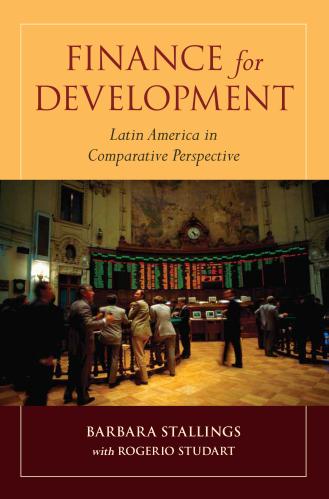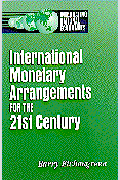What comes after neoliberalism?
It took a global financial crisis followed by several years of painful austerity, but the debate on how to build a post-neoliberal economy is now taking off in both the U.S. and Europe. On both the left and the right, academics and policymakers are articulating alternative visions for society, ones more skeptical of neoliberalism’s embrace of market mechanisms and open to more eclectic approaches. The discussion on possible economic policies is broader than it has been in decades. (Although the change in actually implemented policies has, so far, been more modest.)
In re-examining neoliberalism, Western economies are starting to catch up to the state of debate among policymakers in emerging markets, who rarely embraced neoliberalism as an ideology and who have for some time been debating hybrid models that go beyond neoliberalism.
In a new edited report, “Beyond neoliberalism: Insights from emerging markets,” we draw on experiences from emerging markets to inform contemporary deliberations on the strengths and weaknesses of neoliberal economic models, and to provide some insights on what comes next.
The report is the output of an academic and policy conference the Brookings Global Economy and Development program hosted earlier this year. In it we seek to accomplish two things.
First, we want to contribute to the big picture debates currently underway on how to rethink and revitalize capitalism. Today’s debates around fundamental underpinnings of economic systems are richer than at any point since the collapse of communism. Yet to date, the discussion has largely focused on Western economies. We want to bring emerging markets’ experiences into the mix, both because they can help us understand the nature of neoliberalism and because they can provide ideas for developing a post-neoliberal reform agenda.
Second, and crucially, we want to connect this abstract debate to the concrete policy choices emerging markets are confronting. To that end, the report includes five thematic authored chapters on core policy areas where neoliberalism provides ineffective or insufficient policy guidance:
- Danny Leipziger examines economic growth strategies and industrial policy.
- Ana Revenga and Meagan Dooley explore inequality and redistribution.
- Rakesh Mohan writes on finance and monetary policy.
- Manish Bapna, Helen Mountford, Janet Ranganathan explore the environment.
- Kemal Derviş, Caroline Conroy, and Geoffrey Gertz analyze power and politics.
Each chapter digs into how emerging market policymakers are experimenting with both state- and market-led mechanisms to solve pressing policy challenges. Ultimately, we conclude that it is this process of problem-driven, experimentalist, and evolutionary policymaking that provides the most promising path for moving beyond neoliberalism. We do not see any new elegant, simple, universal model on the horizon that will replace neoliberalism. Rather, we see a messy, incoherent, and fragmented policy landscape, as countries iterate and adjust their economic models through ad hoc policy responses. While this may make international economic integration more challenging, overall this shift toward incoherence is not necessarily a bad thing—productive incoherence can allow countries to productively and pragmatically strengthen both market and state institutions based on their own particular contexts and needs.
The Brookings Institution is committed to quality, independence, and impact.
We are supported by a diverse array of funders. In line with our values and policies, each Brookings publication represents the sole views of its author(s).










Commentary
How emerging markets are moving beyond neoliberalism
May 2, 2019